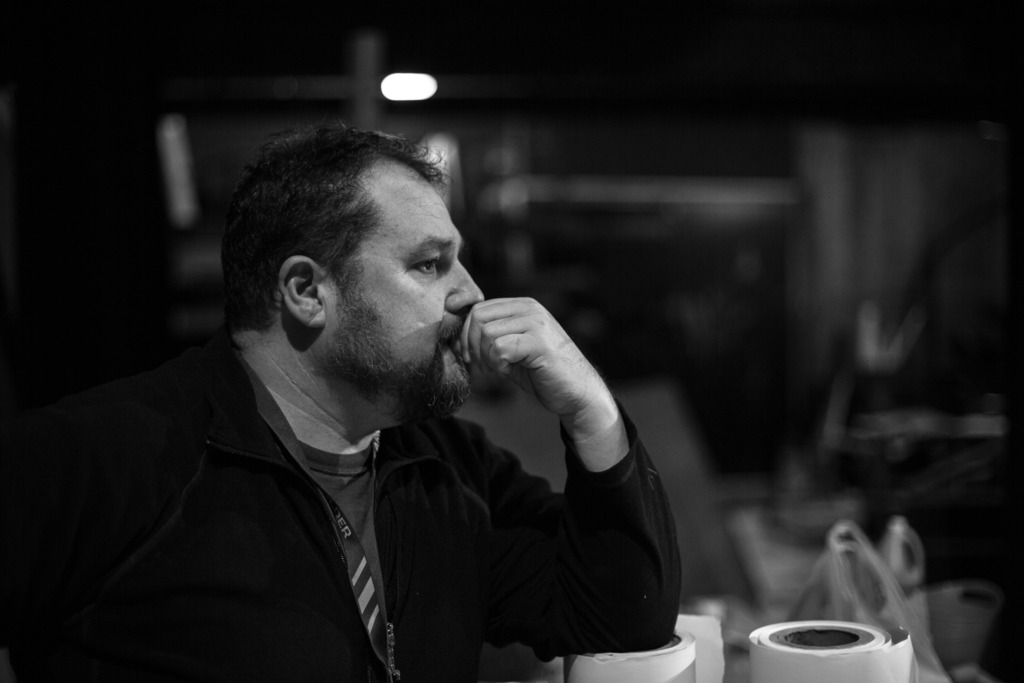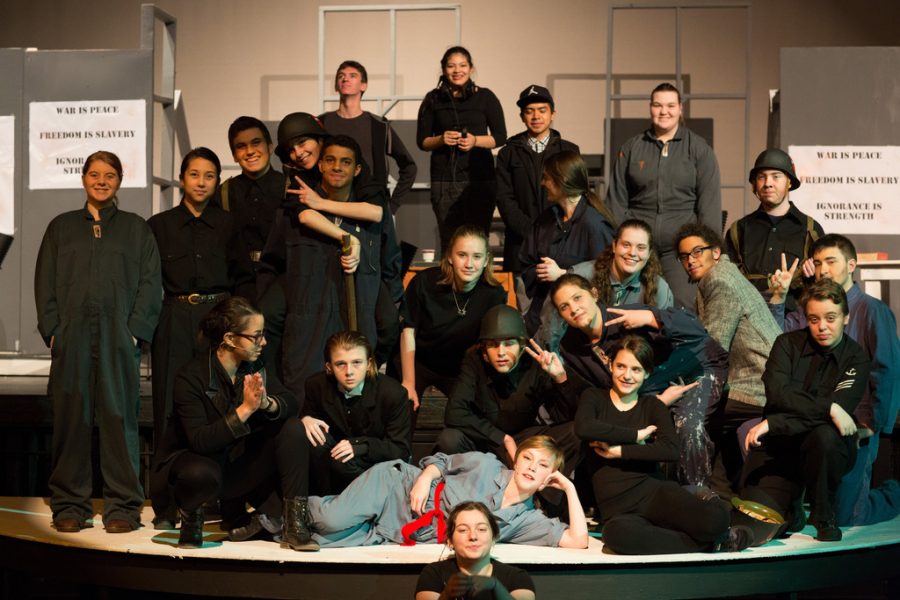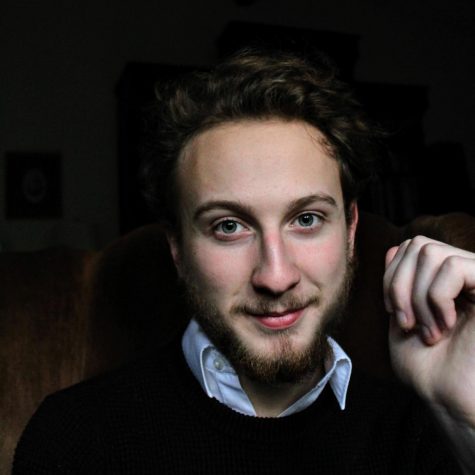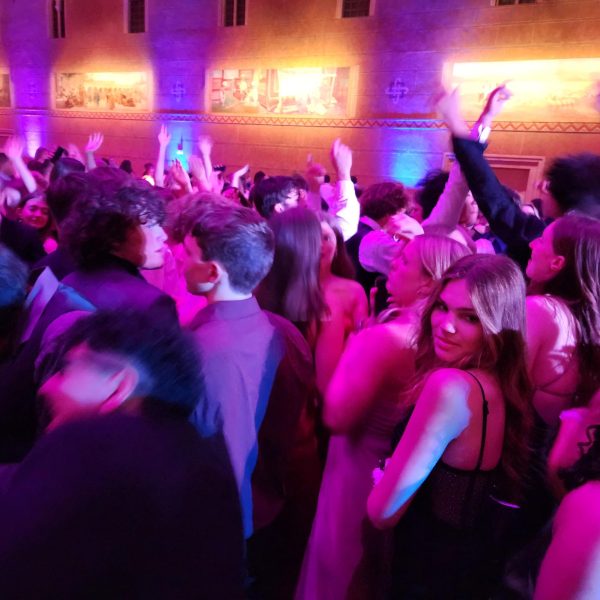Get Smart: behind the curtain of Beaverton’s theater department
Cast and Crew for the department’s 2014 production of Animal Crackers.
Slowly but surely, Beaverton Theatre Department’s first production Get Smart is coming together. We see it on the stage opening night November 15th, but what happens before the curtains go up? What is going on behind the scenes?
What does theatre mean to its cast and crew?
As opening night approaches, the pace quickens in the Theatre Department, fueled by an anxious excitement. There isn’t a square foot in either of the department’s two stages that isn’t bustling with an actor going over their lines to themselves or crew replacing and repairing lighting fixtures. Focus has subdued the normally light-hearted atmosphere as the hearts of the department’s many cogs and gears beat as one. This is arguably one of the most productive halls in the school —rehearsals occupy every stage every day on multiple shows simultaneously, all working towards the same goal: to entertain.
While the common goal is very clear, theatre serves different purposes for different people. For junior Natalie Harwood, the theater is a safe zone from the academic stresses that school brings.
“Theatre is definitely an outlet,” she said. “If you’re stressed at school, you can come here and don’t have to worry about it because you’re invested in something else.”
While no one in the Theatre Department would disagree with Harwood’s statement, other students responded differently.
Sophomore Kennedy Raphelt — who wishes to become a professional actress— sees the theater as an opportunity to “grow in both stature [and] in ways I can learn from other people.”
Meanwhile, senior Shanon Keehn says she has a hard time identifying with herself off-stage.
“[When I joined Drama] I just kinda fit in and you can be as weird as you want and we will still accept you,” Keehn said. “It is this place where I can go and I can honestly be whoever I want.”
Keehn explained that she tried filling her schedule with sports freshmen year to no avail socially. “It’s like the theatre symbol with the masks — you can put on a mask and be your true self,” she said.
What drives the theater toward opening night?
This concept of identity may seem counterintuitive but highlights a peculiar dichotomy: do we assume the identity of someone else behind a mask, or is it in this anonymity that we feel most comfortable being ourselves?
According to junior JR Valentine, director Shannon Dery often claims, “One of the weird things about being on stage is that the only place you can hide is inside of yourself.”
These statements seem to show that it is often the dissonance between the identity of the actor and their character that pushes the show and the art itself forward as opening night approaches.
Supplementing this relatively obscure driving force is the productive duality between unity and diversity. Junior Sophie Gourlay suggests that while creating the base of the show requires that every cast and crew member works on the same wavelength, it is the diversity that breaths life into the production by adding personality.
“It needs to be diverse because if you get twenty copies of the same person, then the show is not going to have as much life as it has when everyone is an individual and brings their own stuff to the table,” Gourlay said. “Contrary to that, everyone has to understand each other and each other’s strengths even if they’re different so that we can learn how to work as a cohesive group. It’s not that everyone has to be the same—it’s that everyone has to be different but working towards the same goal.”
A new teacher — a new era of theatre

Whether the actors and actresses of the theatre department are aware of these forces or not, the department seems to be progressing at an unparalleled rate. This might be because this is theater director Dery’s first year working full-time at Beaverton High School coming from a position at Whitford Middle School.
While this isn’t his first year directing shows at Beaverton, students like sophomore Dawson Fryer have noticed a difference with his newly consistent presence.
“In Whitford, you’re watching a bunch of preteens and they’re kinda everywhere, so most of his energy had to go into making sure that they didn’t break or hurt anyone. Here, I think that he really gets to focus more on the theatre aspect,” he said.
And Dery seems to enjoy working full-time at Beaverton. “I love it! I love it. This is such a blessing to be here,” he said. “As much as I love [the middle-schoolers], high-schoolers are a different animal and I love the fact that you can explain things more in-depth and you can share that academic geekiness. You can geek out a little more with the high-schoolers than you can with the middle-schoolers and I revel in that.”
Dery’s goal as a theater director is “to teach, to give kids experience [and] to get them up on stage and to help them create those memories that will last a lifetime. The chance to make 700 people laugh is a rare and wonderful thing. Every kid should have that experience. That’s my deep goal. I kinda think of myself as a custodian of kids’ memories. I try to make them as positive and fun as I can.”






![District changes have led to restrictions on AP classes for underclassmen [Graphic made with Canva].](https://beavertonhummer.com/wp-content/uploads/2024/06/Comic-Bonanza-600x600.png)

